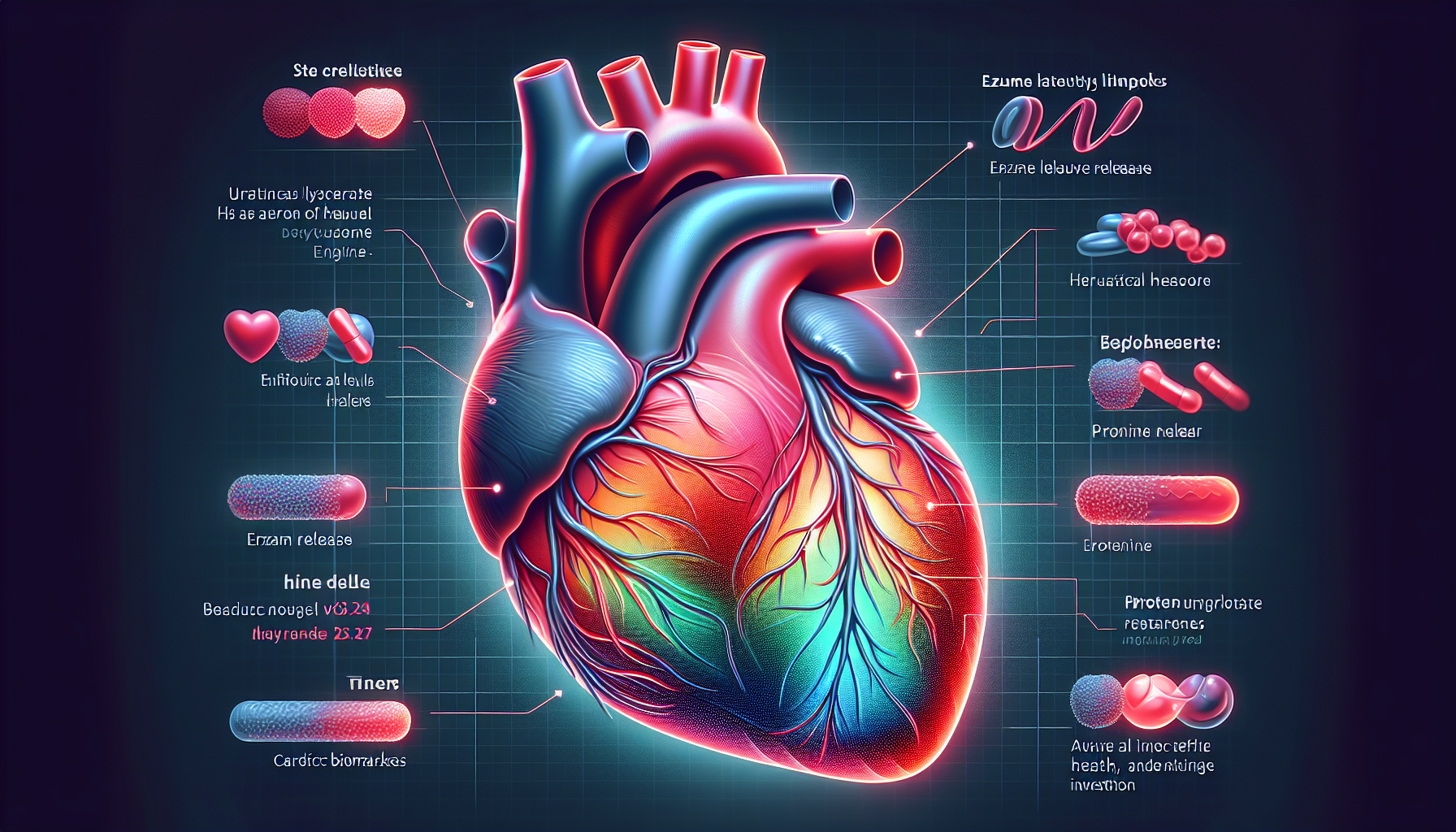Heart health is a critical aspect of overall well-being, and understanding the role of cardiac biomarkers is essential in the prevention, diagnosis, and management of heart diseases. Cardiac biomarkers are substances released into the blood when the heart is under stress or suffering damage. These biomarkers provide valuable information about the functioning and health of the heart, and their levels can be indicative of various cardiovascular conditions.
Understanding Cardiac Biomarkers
Cardiac biomarkers are typically proteins, but they can also include other molecules such as lipids, hormones, and enzymes that are linked to cardiac function. The most commonly known biomarkers include troponins, creatine kinase-MB (CK-MB), myoglobin, B-type natriuretic peptide (BNP), and C-reactive protein (CRP). Each of these has a unique role in cardiovascular health assessment.
Troponins, for instance, are highly sensitive and specific indicators of heart muscle injury and are considered the gold standard for diagnosing myocardial infarction (heart attack). Elevated levels of CK-MB may also indicate myocardial infarction, while myoglobin can provide early detection of heart injury. BNP is valuable in diagnosing and assessing the severity of heart failure, and CRP levels can indicate inflammation and are associated with an increased risk of atherosclerosis and heart disease.
The Importance of Regular Biomarker Monitoring
Regular monitoring of cardiac biomarkers can be crucial in early detection and management of heart disease. It allows healthcare providers to identify individuals at high risk for cardiovascular events and to initiate preventative or therapeutic measures. For those with known heart conditions, biomarker levels can guide treatment decisions and provide insight into the disease’s progression or response to treatment.
For comprehensive information on cardiovascular health and the importance of regular monitoring, visit Cardiovascular Health.
Cardiac Biomarkers and Non-Invasive Testing
With the advancements in medical technology, non-invasive methods to measure cardiac biomarkers have become more prevalent. These tests can be performed quickly and with minimal discomfort, making them more accessible for routine health check-ups. This is particularly important for individuals with a family history of heart disease or those who have risk factors for cardiovascular conditions.
For an in-depth look at the latest in cardiac care, consider reading about Cardiac Care Advancements in Non-Invasive Surgery.
Lifestyle and Its Impact on Heart Health
Lifestyle plays a significant role in heart health, and certain behaviors can influence the levels of cardiac biomarkers. For example, regular physical activity has been shown to lower BNP levels and reduce inflammation, which can be reflected in CRP levels. A balanced diet, particularly one low in saturated fats and high in fiber, can also have a positive impact on heart health and biomarker levels.
To explore the intersection of lifestyle and heart health further, read about The Role of Eco-Friendly Living on Cardiovascular Disease Prevention.
The Significance of Nutritional Deficiencies
Nutrition is intimately connected to heart health, and deficiencies in certain nutrients can have adverse effects on cardiac biomarkers. For instance, a deficiency in omega-3 fatty acids could lead to increased inflammation, potentially raising CRP levels. Similarly, insufficient intake of antioxidants may contribute to oxidative stress, which can harm cardiac cells and affect biomarker levels.
Understanding the impact of nutrition on heart health is further discussed in Impact of Nutritional Deficiencies on Children’s Heart Health.
The Role of Biomarkers in Personalized Medicine
Personalized medicine is an emerging approach that tailors medical treatment to the individual characteristics of each patient. Cardiac biomarkers are integral to this personalized approach, as they can help determine the most effective treatment plan based on an individual’s specific biomarker profile.
External Resources for Further Reading
For those seeking more specialized knowledge on cardiac biomarkers and their applications, the following resources are invaluable:
- The American Heart Association provides a comprehensive overview of the latest research and guidelines on the use of cardiac biomarkers (American Heart Association).
- The European Society of Cardiology offers detailed clinical practice guidelines that incorporate the use of biomarkers in the diagnosis and treatment of cardiovascular diseases (European Society of Cardiology).
- The National Library of Medicine has a vast repository of scientific studies and articles that delve into the nuances of cardiac biomarkers and their clinical implications (PubMed).
Conclusion
Cardiac biomarkers are a powerful tool in the arsenal against heart disease. By understanding and monitoring these biomarkers, both patients and healthcare providers can gain invaluable insights into heart health, leading to better outcomes and improved quality of life. As research continues to evolve, we can expect even more sophisticated use of biomarkers in the diagnosis, treatment, and prevention of cardiovascular diseases.
In the pursuit of robust heart health, it is essential to stay informed about the latest advancements and to engage in proactive healthcare practices. By doing so, we can collectively work towards a future with fewer heart-related illnesses and a greater emphasis on cardiovascular well-being.



